Business
2021 budget: FG to prioritise Lagos-Ibadan, Abuja-Kaduna-Kano roads, 2nd Niger Bridge, others
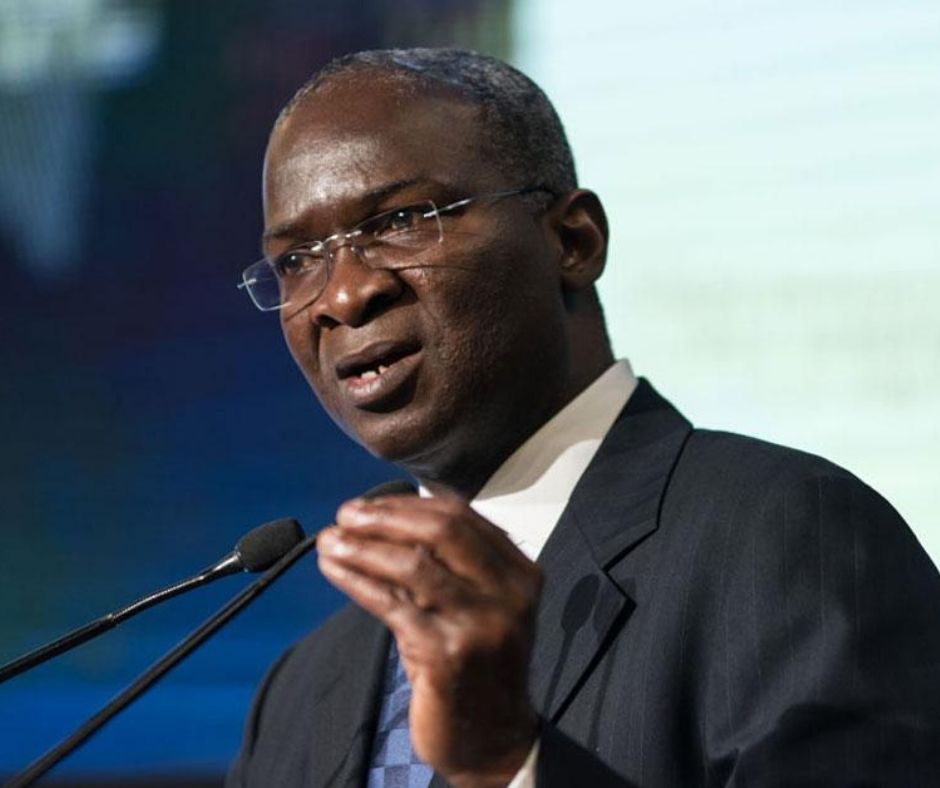
By Dada Jackson
Minister of Works and Housing, Mr Babatunde Fashola, says the Federal Government will focus on the completion of ongoing road and bridge projects in the country rather than beginning new ones, in the implementation of the 2021 Budget.
He listed the road projects as Lagos-Ibadan, Abuja-Kaduna-Kano, 2nd Niger Bridge, Ilorin-Jebba, Jega-Tambuwal-Sokoto and Enugu-Port Harcourt, among others.
Fashola, in a statement made available to News Trends, spoke during the defense of his ministry’s proposals in the 2021 budget.
He listed roads whose completion would be prioritised during the budget year to include those categoriszed as A1-A9, adding that 18 of such road projects, which had reached appreciable level of completion had been identified across the country for completion within 12 to 15 months include those leading to the ports and major agricultural hubs across the six geopolitical zones of the country adding that the decision to prioritise those projects was in line with the mandate of President Muhammadu Buhari, whom, he recalled repeatedly emphasized the necessity to focus the Budget on completion of projects.
According to him, other categories of road and bridge projects on which the ministry will focus for completion during the budget year also include those that have attained 70 per cent completion, adding that subject to the availability of funds, such projects would be completed as early as possible.
He pointed out that some bridges which connect several geopolitical zones and Federal roads had not been maintained for several years before this administration.
Fashola added that some of the bridges required replacement of expansion joints and hand rails while others required major underwater repairs of exposed piles, pile caps and piers.
“Bridges like the Third Mainland Bridge, the Koton Karfe Bridge and the Makurdi Bridge are part of about 50 bridges being rehabilitated simultaneously among others,” he said.
He also said the ministry had its focus on the completion of the construction of Chanchangi Bridge along Takum-Wukari Road in Taraba State and Ikom Bridge along Calabar-Ikom Road.
Expressing the need for the support of the National Assembly in realizing the stated objectives, Fashola, who put the estimated cost of rehabilitating all the bridges at N80.984bn, however, pointed out that there was a need, in the course of each year, to address wash-outs and erosion envisaged with the subsiding discharge of flood waters nationwide.
“We are mindful of the limitation of resources but the frequency of these natural disasters caused by climate change and aging infrastructure must compel us to think of making provisions for emergencies”, he said, adding that the international best practice for such emergencies was between five and 10 per cent of the capital budget.
Fashola, who said the ministry had selected two roads and a bridge in each of the six geopolitical zones for enhanced funding during the budget year, also listed for adequate funding the Federal Government of Nigeria’s counterpart fund for projects financed by the China Exim bank.
On the ministry’s interventions on internal roads in federal tertiary institutions across the country, the minister, who said out of the 43 such projects 18 had been completed, explained that inadequate budgetary provisions had stalled the projects which, according to him, the ministry started since 2018/2019.
He stated that the 17.35 per cent cut in the 2020 budget made it impossible to pay contractors who were being owed N3.31bn while the money required to fix the remainder was given as N3.54bn.
Reiterating that the major challenge of the ministry in completing ongoing projects on time was inadequate budgetary provisions, the minister explained further that aside from the fact that the funds were inadequate, there was also the problem of timely release of funds to sustain annual cash flow requirement level adding that although funds from the Presidential Infrastructure Development Fund (PIDF) and SUKUK Bond had helped to bring some funding relief, the ministry’s exposure had continued to expand due to annual addition of new projects.
He said although the sum provided for highway projects in the 2021 budget was an improvement over the 2020 budget provision for the sector, it was still inadequate to address the funding challenges of highway projects pointing out that with about N1.2tn as the year 2021 projected cash flow requirement, funding for works planned to be executed on the projects in 2021 would have to be “efficiently optimised”.
Fashola said in order for his ministry to make significant impact on the improvement of the federal road network and boost the nation’s economy, there was an urgent need to enhance the release of funds for the projects under the Amended 2020 Budget to defray the outstanding payments; enhance budget ceiling for highway projects in the 2021 budget proposal to cover the execution of works during the year and leverage other alternative funding sources as well as make provision for emergencies to enable government to respond to damage and destruction caused by natural disasters, climate change and other unforeseen events.
The alternative funds, he explained, included the Presidential Infrastructure Development Fund (PIDF), which is being used to rehabilitate, reconstruct and expand the Lagos-Shagamu-Ibadan Dual Carriage way, Construction of Second Niger Bridge and rehabilitation of Abuja-Kaduna-Zaria-Kano Dual Carriageway.
They also include the Sukuk Bond being used to fund a total of 44 road and bridge projects, which are mainly dual carriageways on major arterial routes A1-A9 on the Federal road network using the 2020 Sovereign Sukuk Issuance and Tax Credit Scheme being used in the construction of Bodo-Bonny Bridge across Opobo Channel in Rivers State and the construction/rehabilitation of Lokoja-Obajana-Kabba-Ilorin Road Section II in Kwara and Kogi States, among others.
On the issue of delay in project completion raised by committee members during the interactive session, the minister said aside the twin challenges of inadequate funding and delayed releases, there was also the fact that some of the roads carry heavy traffic which had to be managed while construction, reconstruction or rehabilitation was going on.
Fashola said it was necessary to put some measures in place for the safety of both the workers and commuters.
The minister told the lawmakers, “When we talk about delay of projects, I would have loved you to have specifics of what is considered as delays. It is important to understand what happens at the construction site, especially on highways, where we are reconstructing and commuters still have traffic,” adding that ideally on a construction site traffic should be shut down.
He cited as examples the Third Mainland Bridge in Lagos with an average Daily Traffic (ADT) of 122,978 vehicles, the Koton Karfe Bridge with Average Daily Traffic of 11,942 vehicles and the Makurdi Bridge, adding that the Lagos-Sagamu-Ibadan carries the heaviest daily traffic in the country followed by the Abuja-Kaduna-Kano Road.
On why the Sukuk could not be expanded to fund other road projects as a means of overcoming the problem of inadequate funding, he explained that at every issuance, there was a specific amount which the government could withdraw, adding that no money would be left as reserve for Sukuk fund.
Business
Ex-Twitter CEO Jack Dorsey locked out of X account

Ex-Twitter CEO Jack Dorsey locked out of X account
Jack Dorsey, the co-founder and former CEO of Twitter, has reportedly been locked out of his account on X, the social media platform that succeeded Twitter under Elon Musk’s ownership.
The news broke on Wednesday night, when Dorsey posted about the issue on Primal, an alternative social media network, stating that his X account had been restricted with an 11-hour lockout period remaining as of that date.
“We have determined that you have violated the X rules, so you’ll need to wait some time before using X again.
“You’ll be able to unlock your account in: 11 hours and 3 minutes,” Jack shared on Primal.
Dorsey’s lockout has caused numerous speculations among X users, though the platform has provided no official explanation.
Dorsey, who stepped down as Twitter’s CEO in 2021, has remained an influential figure in the tech world. His unexpected account restriction has raised eyebrows, particularly given his foundational role in building the platform that X evolved from.
READ ALSO:
- Obasanjo lambasts Tinubu on high cost of VP new residence, Lagos-Calabar highway
- ‘Akpabio can’t be forced to honour IPU invitation over Natasha’s accusations’
- Natasha: Senate writes IPU on her suspension
Posts on X reflect a mix of reactions, ranging from humorous takes suggesting karmic irony—given Dorsey’s tenure overseeing Twitter’s content moderation policies—to questions about whether the lockout stems from a technical glitch or a deliberate action under Musk’s leadership.
Dorsey’s most recent activity on X included retweeting links to external content, but none of those posts appear to clarify the reason behind the restriction.
Reacting X user Patriot Lady @angelwoman501 tweeted, “Jack Dorsey, former CEO of Twitter, has been locked out of his X.
“How does it feel, Jack? We will never forget how you were taking millions from Joe Biden to cancel conservatives. Were you on the USAID payroll as well? Jack, you look terrible.”
Another user, Oli London @olilondontv, reacted, saying, “Under Dorsey’s Twitter leadership, thousands of conservatives had their accounts suspended.”
An X account Tiffany Fong @tiffanyfong_ took a lighter tack: “Jack Dorsey, former CEO of Twitter, has been thrown in 𝕏 jail 
Western Decline @westerndecline_ replied to a tweet by Dogedesigner, “For all the accounts that were wrongfully suspended while he was the CEO of Twitter… I don’t feel an ounce of sympathy for the guy.”
As of now, X has not released a statement addressing the situation. Dorsey, who also co-founded Block Inc., has yet to provide further updates on the matter via Primal or other channels.
Ex-Twitter CEO Jack Dorsey locked out of X account
Business
Petrol import rose by 105.3% in 2024 – NBS
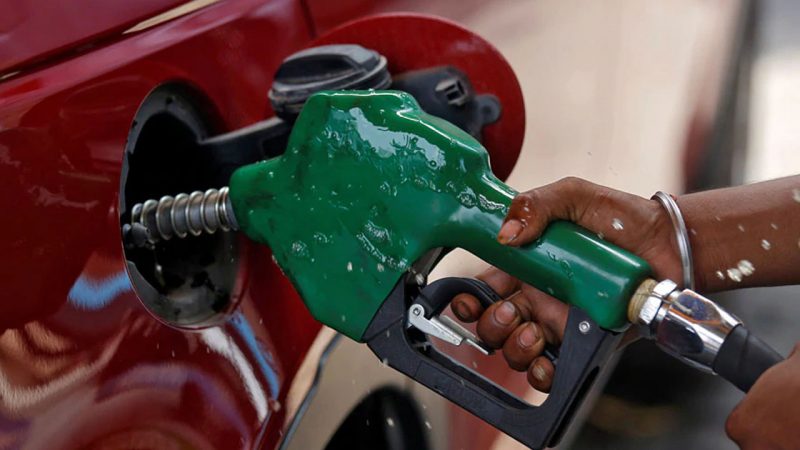
Petrol import rose by 105.3% in 2024 – NBS
Petrol imports surged by 105.3 per cent, reaching N15.42 trillion in 2024, from the N7.51 trillion recorded in 2023. This was contained in the latest data on foreign trade statistics released by the National Bureau of Statistics (NBS), yesterday. The development comes despite current increasing domestic refining capacity, and the ongoing rehabilitation of state-owned refineries.
Previously, the country had spent N2.01trillion on fuel imports in 2020; in 2021, this figure more rose to N4.56 trillion, or 126.9 per cent; N7.71 trillion or 69.1 per cent in 2022, before recording a marginal decline of 2.6 per cent to N7.51 trillion in 2023.
However, riding on the back of a 40.9 per cent depreciation of the naira, in 2024, the import a 105.3 per cent increase to N15.42 trillion, the highest on record.
Despite the rise in local refining, production remains insufficient in meeting demands, necessitating continuous dependence on importation.
Supply chain inefficiencies, and persistent demand-supply imbalances, foreign exchange fluctuations, among other factors, have also militated against meeting local demands, as the rising cost of petrol imports continues to strain government finances and consumer purchasing power.
READ ALSO:
- Breaking: Nine abducted Ondo surveyors released after payment of N20m ransom
- Omokri to el-Rufai: No party defector has ever become Nigeria’s president
- Tinubu set to appoint new ambassadors after 18 months
In December 2024, the Nigeria National Petroleum Company Limited (NNPCL) announced the restart of the 125,000 barrels per day (bpd) Warri Refinery and Petrochemical Company (WRPC), which was approved for rehabilitation in 2021 for $897 million.
The Port Harcourt Refining Company (PHRC), with a total installed capacity of 210,000bpd, recently restarted operations at its old plant, which currently produces 60,000bpd.
The Major Energies Marketers Association of Nigeria (MEMAN), may have thrown its weight behind continued importation on the grounds that it fosters competition and potentially stabilising prices.
The Executive Secretary, MEMAN, Clement Isong, said: “What importation does for us is that it contributes to the market competitiveness. The price movements you are enjoying and the market competition are the result of importation. Importation is useful.”
He nonetheless clarified that the Association is not against local refining, and desires it as well, but “what ensures that we have the most competitive price is that locally refined fuel prices have to compete with imported prices. That is what keeps our prices at the pump as low as possible,” he asserted.
Petrol import rose by 105.3% in 2024 – NBS
Business
High expectations as petrol price may drop to N800/litre
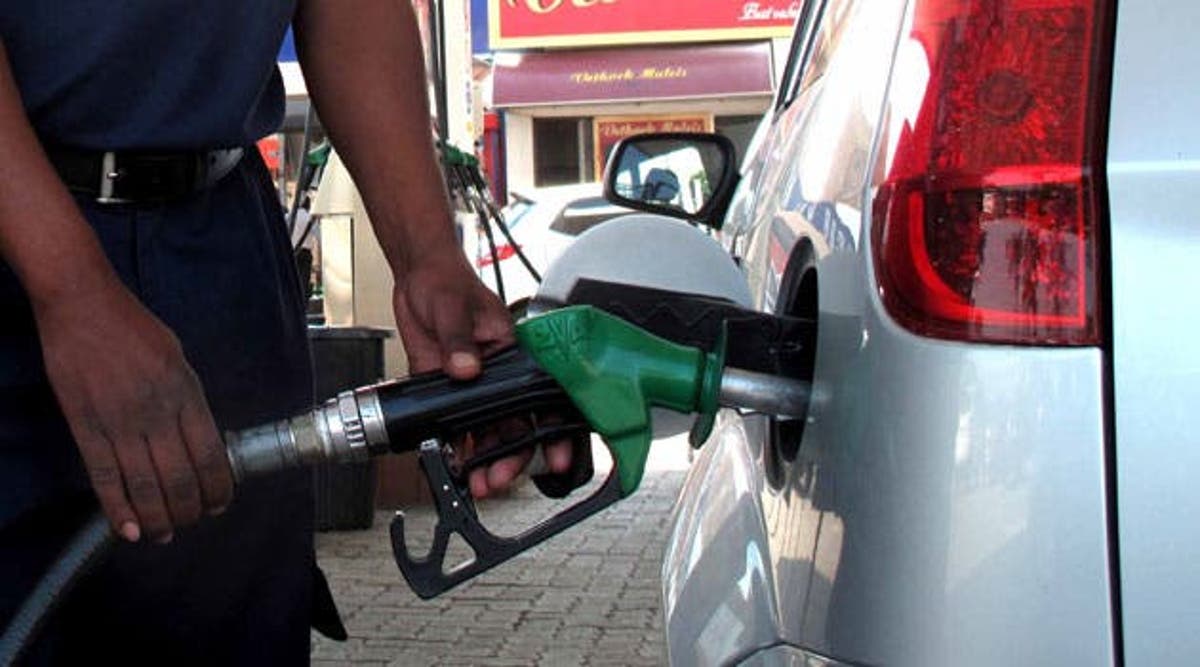
High expectations as petrol price may drop to N800/litre
The downstream oil sector in Nigeria is witnessing intensified competition as major oil marketers slash prices, challenging the N825 per litre gantry loading cost set by the Dangote Petroleum Refinery.
This move follows revelations by industry players that the landing cost of imported Premium Motor Spirit (PMS) has dropped to N774.72 per litre, reflecting a N50.28 reduction from Dangote’s loading price. The landing cost factors in expenses such as shipping, import duties, and exchange rates, contributing to the overall decline.
Dealers suggest that the ongoing price drop could soon lead to a reduction in pump prices to around N800 per litre, offering some relief to consumers already grappling with high fuel costs.
The situation, according to industry stakeholders, has ignited a price war, with retail marketers now opting to dump the refinery products for imported products on the basis of lower pricing.
Findings by this newspaper also revealed that this decrease in landing cost is expected to influence the price at which petrol is sold to consumers and could increase marketers’ interest in returning to petrol imports.
“Crude oil is a major component in the production of fuel, so a further reduction in its price would definitely warrant a drop in petrol price, and it is possible to drop to N800 per litre,” the National Publicity Secretary of the Independent Marketers Association of Nigeria, Chief Ukadike Chinedu, stated.
READ ALSO:
- PANDEF seeks Tinubu intervention in Rivers crisis
- Trade war escalates as Trump metal tariffs take effect
- ECOWAS activates standby force against insurgency
Recall that last Monday, NNPC dropped its retail petrol price to N860 and N880 per litre from N945 and N965 in Lagos and Abuja, respectively.
NNPC’s petrol price drop followed Dangote refinery’s retail fuel price reduction to N860 and N880 per litre across its retail partners.
The refinery, in its second price reduction in the new year and the third one in a space of two months, reduced its ex-depot petrol price from N890 to N825 per litre to the delight of Nigerians.
But the reduction by NNPC, the country’s largest fuel supplier, sparked a wave of competitive pricing among private marketers seeking to capture the market share in an environment where consumers are highly sensitive to price fluctuations.
The pain of the price reduction was more significant for petrol importers as they lost an average of N2.5bn daily and N75bn monthly due to the PMS price reduction.
But in a swift business survival strategy, these marketers have now secured fresh products at a cheaper cost that is now detrimental to the operations of the refinery.
According to the latest competency centre daily energy data released by the Major Energies Marketers Association of Nigeria and obtained by our correspondent on Tuesday, the on-spot estimated import parity into tanks has reduced to N774.82 per litre, a reduction of N152.56 or 16.5 per cent from the N927.48 per litre quoted on February 21, 2025 (the last energy data on petrol).
The average cost for 30 days also dropped to N864.92 per litre, while on-the-spot sale at the NPSC terminal was N927.53.
The document also noted that the price of Brent crude was benchmarked at $70.36 per barrel, down from $76.48 per barrel quoted on February 21, with an exchange rate of N1,517.24 per dollar. This price was calculated based on 38,000 metric tonnes by the marketers.
This cost is viewed as an improvement for importers, providing private depot owners and independent marketers with an alternative route to profitability and the opportunity to source cheaper products
Further checks by our correspondent revealed that private depots have effected a price change lower than marketers off taking products from the refinery.
An analysis showed that AA RANO depot has reduced its loading cost to N830 per litre, MENJ Depot now sells at N830, MRS TINCAN sold its products at N830, WOSBAB gave its customers a price estimate of N832, AITEO gave a price of N832 and RAINOIL depot sold its products at N831 per litre.
While marketers that bought two million litres from the Dangote refinery at N825 are selling at N835 per litre, indicating an N1 profit and N4 less than the price offered by private depots.
High expectations as petrol price may drop to N800/litre
(Punch)
-

 metro2 days ago
metro2 days agoJUST IN: Fubara locked out of Rivers Assembly complex (Video)
-

 Railway2 days ago
Railway2 days agoWe’ll stamp out railway vandalism, says Opeifa, after recovering stolen 91 sleepers, 25 rails
-
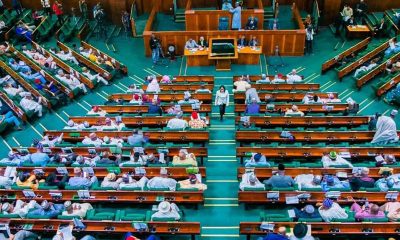
 metro2 days ago
metro2 days agoBREAKING: House of Reps orders shutdown of porn websites nationwide
-

 metro2 days ago
metro2 days agoOmokri to el-Rufai: No party defector has ever become Nigeria’s president
-

 metro3 days ago
metro3 days agoAPC council chairmanship aspirant hacked to death in Lagos
-

 Entertainment2 days ago
Entertainment2 days agoI’ve videos of multiple men sleeping with my wife – Ijoba Lande
-

 Entertainment17 hours ago
Entertainment17 hours agoCourt bans viewing of controversial film, ‘Gang of Lagos’
-

 News18 hours ago
News18 hours agoNigerian woman declared dead appears in UK court to reclaim her £350,000 home

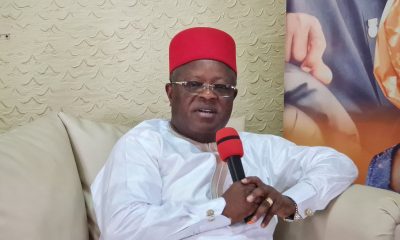







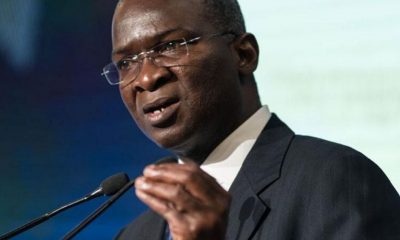




You must be logged in to post a comment Login